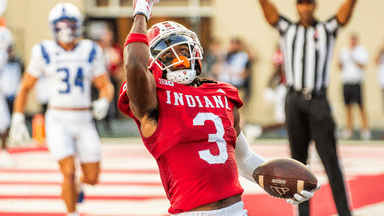In the NIL era, players have essentially found themselves being treated as stocks, while programs and coaches stand in as firms and brokers. Portfolios are now just as important as passer ratings. However, when you begin to monetize wins and pull the rug during losses, it creates a lot of financial volatility for student athletes.
Advertisement
Take the former Georgia Bulldog and current Miami Hurricane, Carson Beck, for instance. Before the start of this season, the 23-year-old was sporting a $4.3-million NIL valuation. And, even though he’s managed to help the Hurricanes to a 9-2 record and a spot in the top-15 national rankings, Beck’s total has fallen to $3.1 million.
On the other end of the spectrum, there’s Fernando Mendoza. Indiana’s surging junior walked into the year with just $1.6-million in NIL dealings. After stunning the nation with a perfect 11-0 run that earned the Hoosiers a guaranteed spot at the dance, Mendoza’s NIL portfolio has nearly doubled in value.
Heading into his final game of the regular season against the Purdue Boilermakers, the Miami native now has a cool $2.6-million invested into his name, image, and likeness. Like two ships passing in the night, or two stocks going in opposite directions, Mendoza and Beck are simply headed on two different paths.
In essence, if you’re ever trying to figure out where the talent may be, follow the money. The second that a player, or coach even, who has shown any promise whatsoever, becomes potentially available, they are almost immediately flooded with cash offers.
Athletic directors and donors are now in the business of buying both talent and outright wins. And a fortune will be paid to any student athlete who appears to be capable of providing one, if not both of those factors. Simply put, the business side of football has never been more dominant.
Has it been a positive for players in terms of compensation? Yes. But has it seemingly eroded some of the qualities that used to make college sports special, things like loyalty, homegrown talent, and multi-year stints?
Nick Saban, arguably the greatest coach in the history of college football, famously rang the alarm on the ever-increasing cost associated with fielding a competitive football team. The former Alabama head coach also notoriously stated that the introduction of the NIL system as we know it today marked a turning point in his relationship with the idea of retirement.
There’s no denying that players deserve a seat at the shareholders’ meeting. But when 20-year-old college kids are winning and losing millions of dollars in promotional dealings yearly, it’s hard to expect them to take the same risks that their predecessors used to be famous for.







